Previously, we discussed
the rise of AI and how each decade has its fear of a brand-new technology that threatens humanity. While people try and find some solace in humor, the fear of AI is brewing.
So when it comes to media, how will AI make an impact?
This time, we’re diving deep into AI in the media field. Is it a means to elevate the quality of content and facilitate art-making? Or is it a threat on the rise that will replace writers, creatives, and artists?
Examples of AI being Used.
Art generated by AI has been dominating social media for a while.
From making movie trailers
To making “What if another director made a movie”
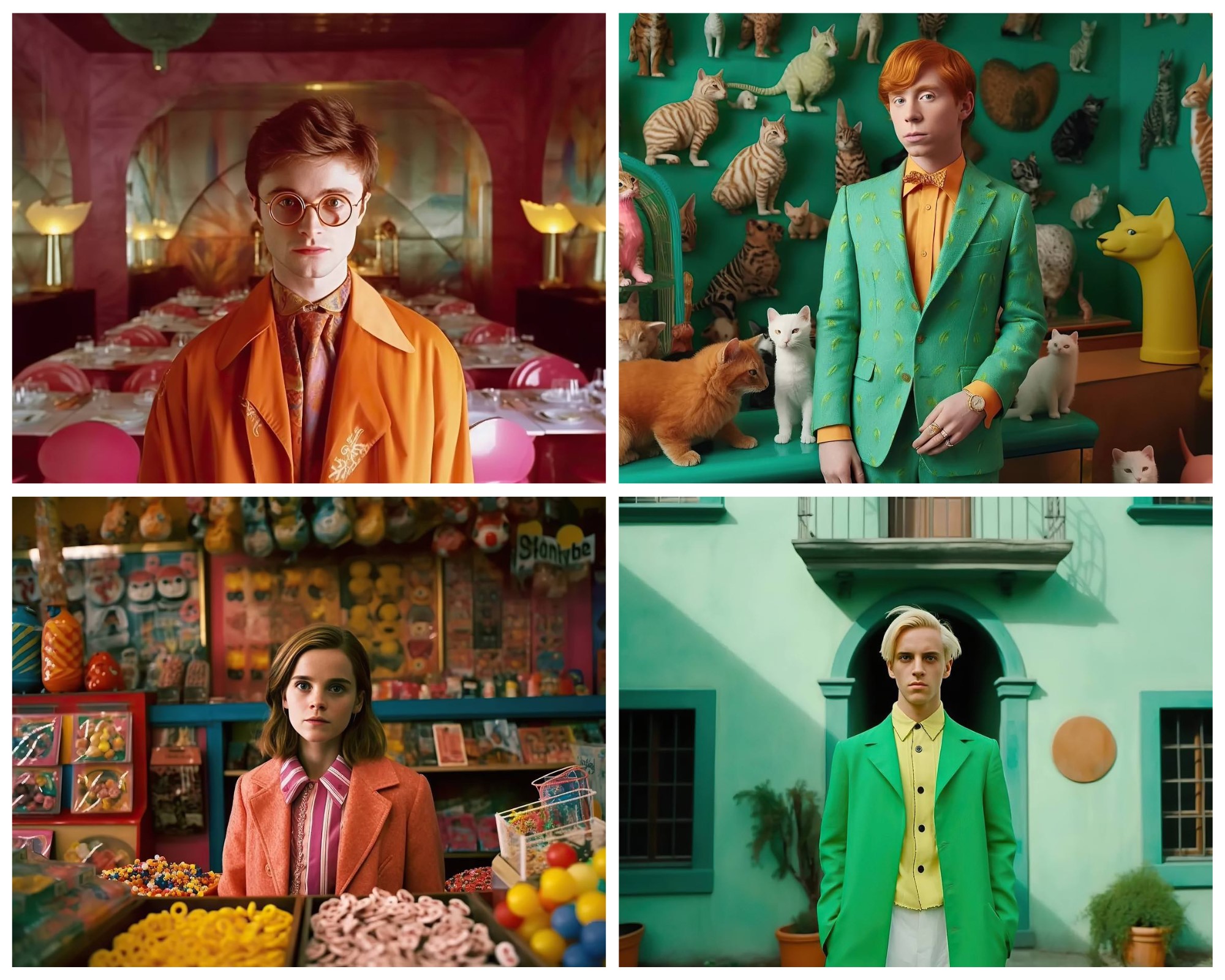 What if Wes Anderson made the Harry Potter series?
What if Wes Anderson made the Harry Potter series?
Credit: @panoramachannel
Or using an artist’s voice, flow, and style to sing another song.
Just recently after King Charles III's coronation, AI-generated photos circulated the internet showing how he celebrated becoming the king.
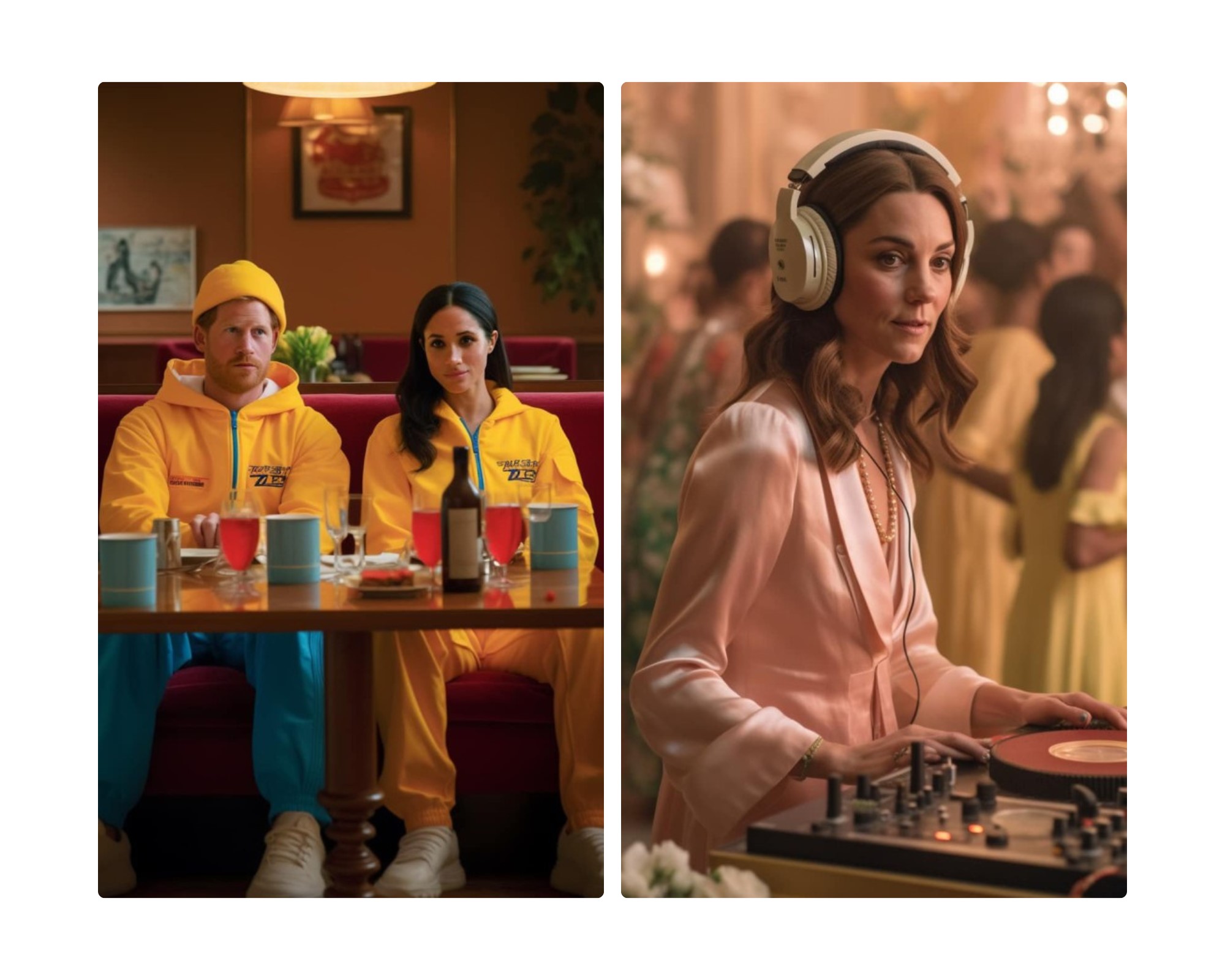 Regarding media, opinions are split on how it will change the media landscape and how audiences will receive AI-made art. Let’s face the facts, AI is already being used in major films as visual effects including deep fakes and de-aging.
Regarding media, opinions are split on how it will change the media landscape and how audiences will receive AI-made art. Let’s face the facts, AI is already being used in major films as visual effects including deep fakes and de-aging.
But what about filmmakers and writers? Where do they stand when it comes to AI usage in films?
Directors’ Take on AI in Film
In a recent interview, Avengers: Endgame director Joe Russo, believes AI could hit the film industry far sooner than some might expect, and predicts that AI-Generated films are two years away.
Yet, Russo isn’t praising AI usage. In a later interview, he said "I think everyone should be scared of AI"
"I think it'd be crazy not to be a little bit afraid, and I empathize with people who are a lot afraid."
Russo told Variety AI must work as a "tool servicing us rather than us servicing the tool."
 Joe Russo
Joe Russo
The Oscar-winning director, Guillermo del Toro, expressed his concern about AI's impact on the film industry saying “Real Art Is Made by Humans”
“I think that art is an expression of the soul. At its best, it encompasses everything you are. Therefore, I consume and love art made by humans. I am completely moved by that. I am not interested in an illustration made by machines and the extrapolation of information.” he further elaborates.
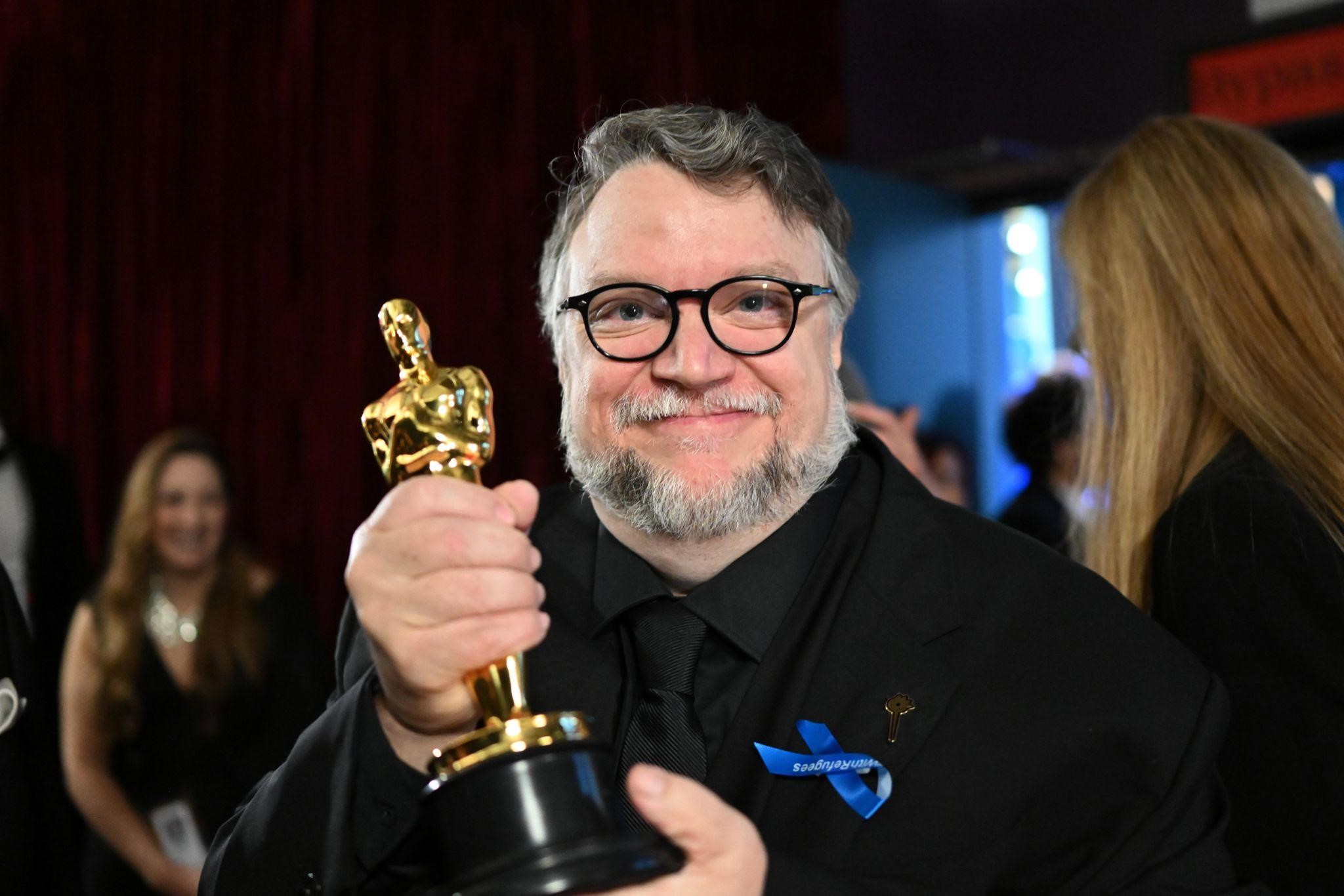 Guillermo del Toro
Guillermo del Toro
While AI is a great means to boost creativity, writers are voicing their concerns about having their original content transformed and plots changed due to AI usage.
Writers Against AI
Right now, there’s a writer strike in the USA demanding bigger pay.
But also, one of the reasons why the Writers Guild of America (WGA) is protesting is to prevent AI from being used as a tool for companies aiming to reduce the amount they pay workers (or to get rid of them).
The WGA hopes to put rules regulating the use of AI in writers’ rooms—preventing it from “writing” or altering materials covered by the Minimum Basic Agreement, and ensuring that MBA material can’t be used to train these programs.
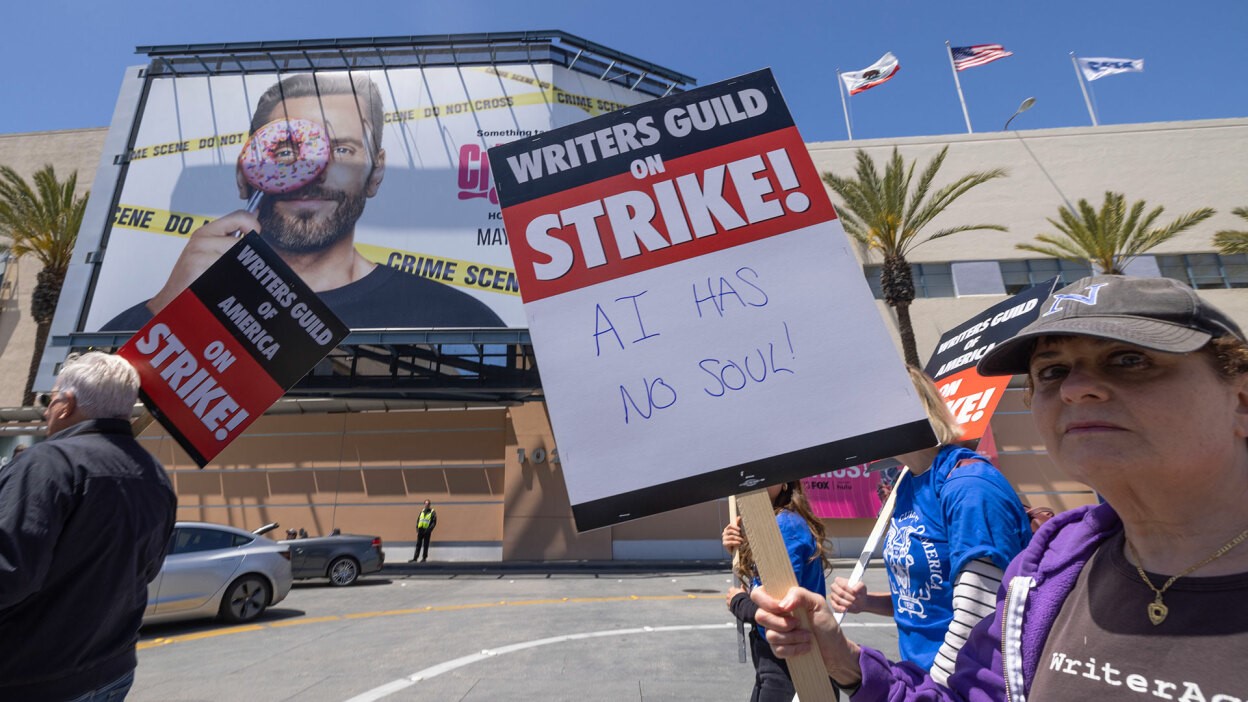
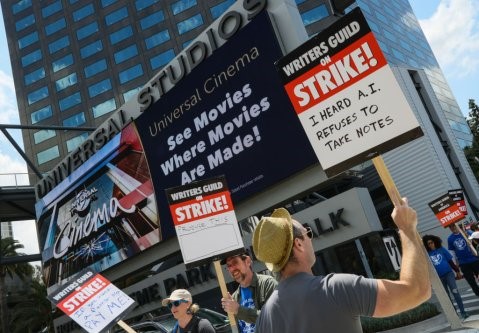 The fear of AI is growing on a daily basis, and yet some media outlets are embracing AI as a means to make the industry more efficient and effective. How does this impact the future of the media industry?
The fear of AI is growing on a daily basis, and yet some media outlets are embracing AI as a means to make the industry more efficient and effective. How does this impact the future of the media industry?
AI Usage in Media & Entertainment
Let’s dissect it into two sections.
How AI can be used in the entertainment field? And the second part is about how it can be used in media and news sections.
AI in the Entertainment Landscape
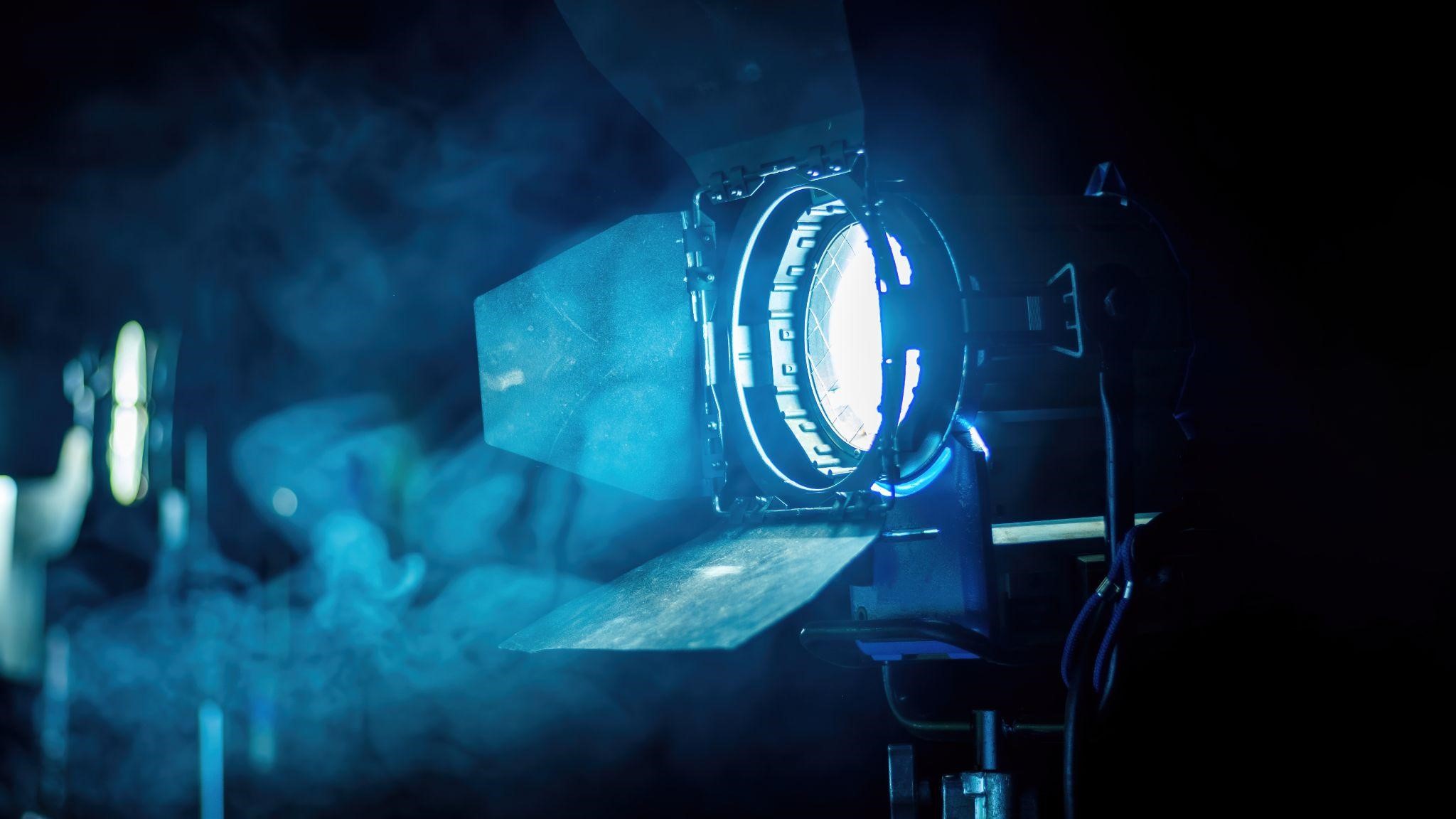 Art in all its shapes and forms is man-made. Movies, songs, books, and shows are created by humans and are based on personal traumas, life experiences, and comedic situations. Yet, artists seem to lean into AI usage to create content but how does it work?
Art in all its shapes and forms is man-made. Movies, songs, books, and shows are created by humans and are based on personal traumas, life experiences, and comedic situations. Yet, artists seem to lean into AI usage to create content but how does it work?
For starters, AI can analyze existing screenplays and write new ones that lead to cost-effective screenwriting.
With AI, studios can make better decisions about what films are going to be greenlit and how they are going to be marketed by analyzing audience data and preferences.
According to several people who tried AI to generate content, it helps fill the gap in the author’s mind, and light the bulb in their brain when facing writer’s block.
It should be noted that AI is generating content based on a plethora of existing data, not creating a new original concept.
AI in the Newsroom
Let’s tackle what AI can do in the news industry.
● Gather news from different reliable sources
● Fix grammar and spelling mistakes
● Facilitate image recognition and video making
● Spot trends and keep an eye on upcoming stories
● Recommend articles to users based on various factors
In 2018 China’s Xinhua News Agency created the world’s first AI-powered news anchor, a male, using computer graphics. In 2019, it debuted the first AI female news anchor
Just recently, Egypt’s Haya TV channel announced that they got their very first AI-generated news presenter.
All of that sounds promising right? Yet, AI isn’t immune to biased opinions, and unoriginality and cannot be fully authentic.
From ethical concerns to the spread of fake news, what threats are news outlets facing with AI?
For starters, an ethical problem has risen because now journalists use Chat GPT to write articles, so they have to tell their audiences and readers that the piece written is AI-generated.
With some journalists putting prompts for AI to write articles, they run the risk of being misquoted or spread of fake news and propaganda.
This puts a lot of pressure on journalists to be careful not to ruin their or the newspaper's credibility.
Not to mention the fear of using AI that might lead to losing jobs and being replaced by machines, putting AI-generated content without a human point of view or content that stimulates the readers' minds.
What’s Next? Are We Being Replaced?
We are not aware of what the future holds, nor can we say for sure whether AI is going to replace us or not. But here’s what is certain.
1. AI is a great tool and should be used that way.
2. Art is human-based, created, and made for humans. No matter how much AI advances, we crave the human touch.
We love when we see media that shows our struggles and triumphs. We relate to the stories made by humans; while AI can write a coherent story from start to finish, there are things that when described in writing, shown in movies, or heard in music, AI cannot replicate or describe it.
We should be skeptical and question things. Raise flags and point out what is wrong with it. Most importantly, we must follow the truth by ourselves, and encourage artists to create work from the heart.
AI is a tool and let’s hope we use it that way.
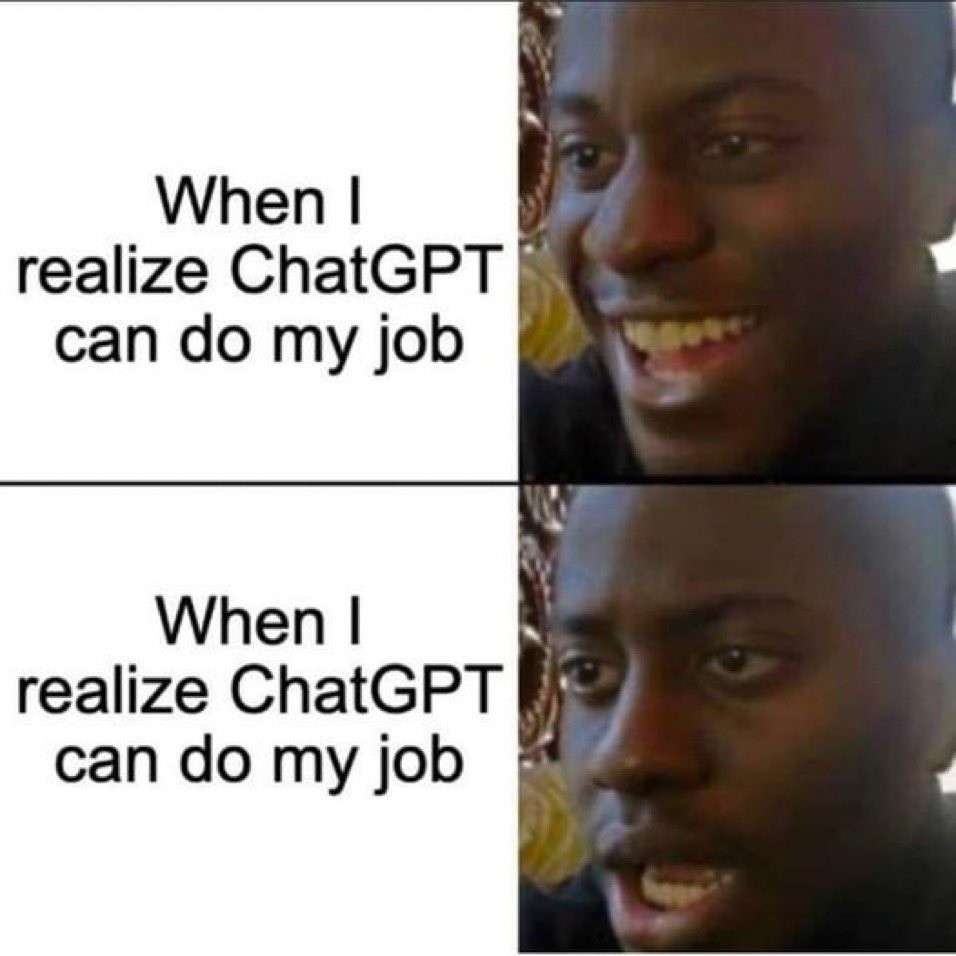

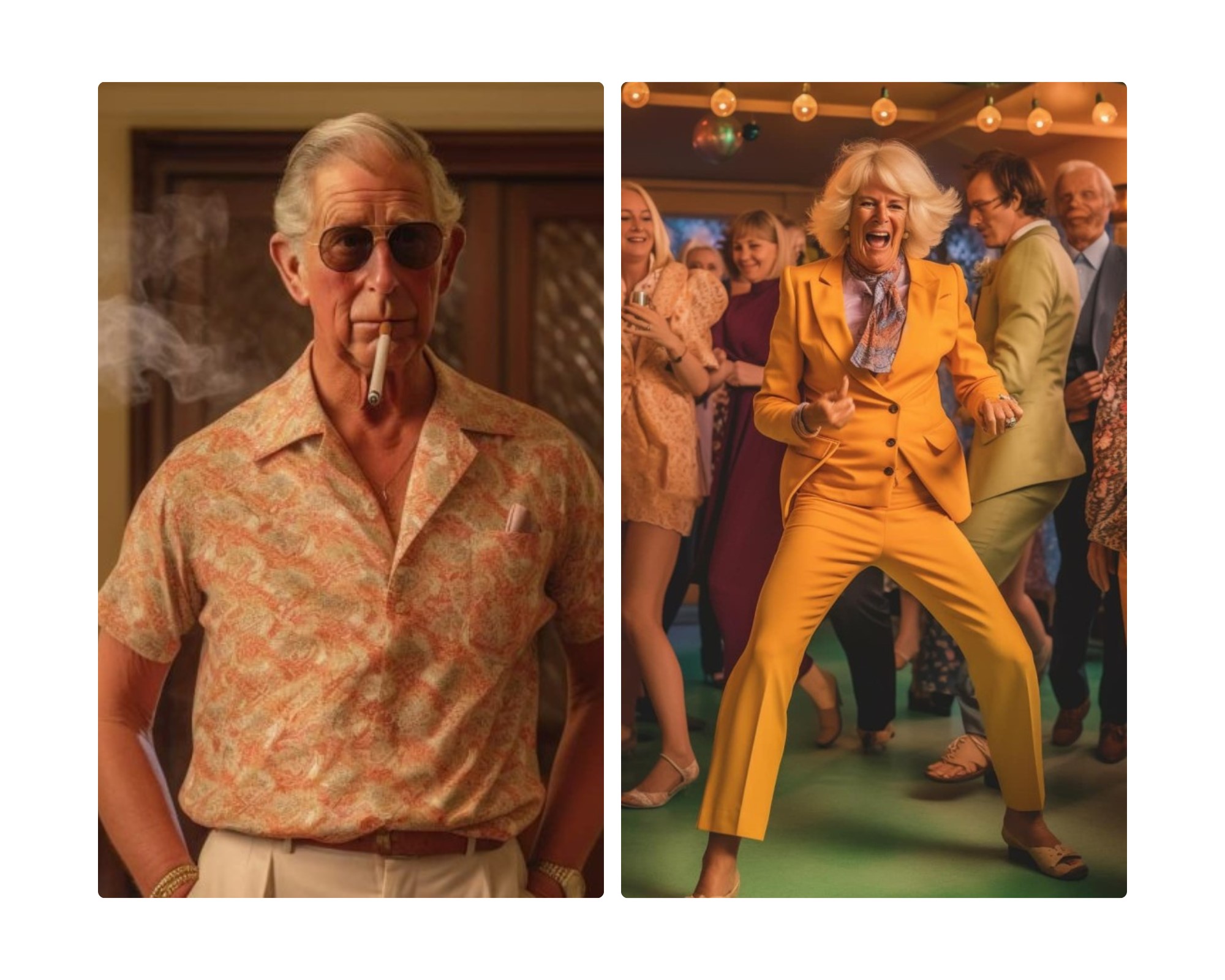






Comments
Leave a Comment